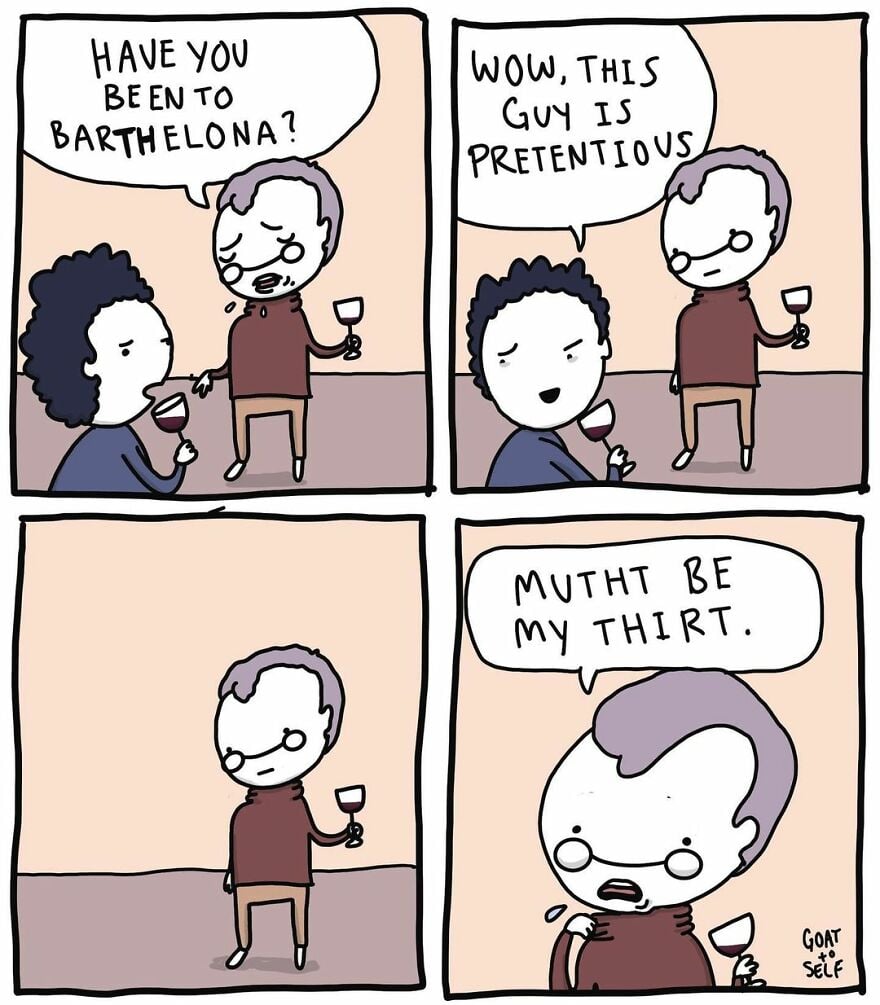this post was submitted on 07 Jan 2025
611 points (95.9% liked)
Comic Strips
17204 readers
2388 users here now
Comic Strips is a community for those who love comic stories.
The rules are simple:
- The post can be a single image, an image gallery, or a link to a specific comic hosted on another site (the author's website, for instance).
- The comic must be a complete story.
- If it is an external link, it must be to a specific story, not to the root of the site.
- You may post comics from others or your own.
- If you are posting a comic of your own, a maximum of one per week is allowed (I know, your comics are great, but this rule helps avoid spam).
- The comic can be in any language, but if it's not in English, OP must include an English translation in the post's 'body' field (note: you don't need to select a specific language when posting a comic).
- Politeness.
- Adult content is not allowed. This community aims to be fun for people of all ages.
Web of links
- !linuxmemes@lemmy.world: "I use Arch btw"
- !memes@lemmy.world: memes (you don't say!)
founded 2 years ago
MODERATORS
you are viewing a single comment's thread
view the rest of the comments
view the rest of the comments

The ancient Spanish basically all had a lisp. Nobody thought about it at the time and it eventually became the status quo and then correct pronunciation. I base this on absolutely nothing and will die on this hill.
There is an urban legend that everyone in Spain started speaking this way because of the super-inbred Habsburg kings had a terrible lisp and everyone wanted to make him sound normal. There's no evidence of it, but considering this guy was king of Spain...
Consider that the artist probably, at the direction of the subject, made some alterations (aka photoshopped) to the painting in order for the portrait to come out how they wanted to appear. It's possible that the subject looked even worse.
Oh almost certainly. You don't make the king look bad.
When Spain invaded Latinamerica, they recorded the language of the natives phonetically but there were a lot of sounds that didn't have an Spanish equivalent so they just wrote X for all of them and now they're trying to retroactively fix the spelling of several words so you're kinda right. For example, Spain insists México is spelled Méjico.
Edit: Apparently, as of recently, Spain no longer insists México is spelled Méjico but still keeps it around as a correct spelling (it's not, it's literally only them).
That sounds interesting, do you have a source? I'd like to learn more.
I've read that in ancient Spanish the letter X had in some cases the sound that the letter J has in modern Spanish, therefore the spelling of some words changed accordingly: Don Quixote is Don Quijote in modern day Spanish.
It's not a lisp. Castilian pronunciation uses the same S sound as for the letter S as speakers from Latin America. It's only Z and soft C that are different.